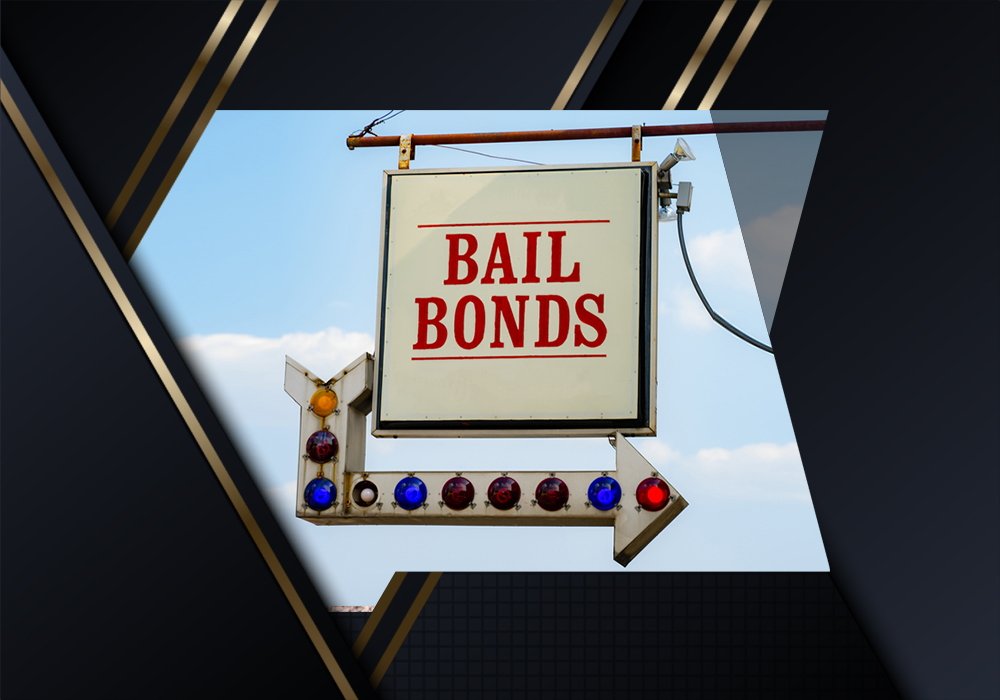Exactly how to Browse the Intricacies of a Bail Bond: Tips for First-Time Users
Maneuvering the intricacies of a bail bond can be frustrating for those strange with the process. Many first-time individuals discover themselves confused by the terminology and responsibilities involved. Recognizing crucial ideas such as costs and collateral is important. Additionally, picking a respectable bondsman can significantly ease the trip. Nevertheless, there are important aspects and usual pitfalls that can complicate issues even more. Checking out these can give beneficial insights for any person encountering this difficult circumstance.
Recognizing Bail Bond Terminology
What essential terms should one recognize with when passing through the world of Bail bonds? Comprehending basic terminology is crucial for navigating Bail bonds successfully. The term "Bail" refers to the quantity of cash or home needed to secure an offender's launch from custody, guaranteeing their appearance in court. "Bail bond" signifies an agreement between the offender, the court, and a bondsman, that gives the Bail amount for a charge, commonly 10-15% of the total Bail. "Collateral" might be called for, entailing assets promised to guarantee payment if the accused falls short to show up (bail bonds service). "Costs" is the non-refundable fee paid to the bondsman for their solutions. Furthermore, "loss" happens if the offender does not comply with court appearances, causing the loss of the Bail quantity. Experience with these terms empowers people to make enlightened choices throughout the Bail procedure
The Various Kinds Of Bail Bonds
When considering the various alternatives for securing an offender's launch, one may question the various kinds of Bail bonds available. One of the most typical kind is the guaranty bond, where a bondsman ensures the full Bail amount in exchange for a fee, commonly around 10%. An additional choice is a money bond, which calls for the offender or their family to pay the whole Bail quantity in money upfront, refundable upon court look. Residential or commercial property bonds involve using property as security to safeguard the Bail amount. In addition, some jurisdictions supply government bonds for government offenses, which have particular needs. Lastly, there are migration bonds for individuals apprehended by migration authorities. Each kind serves a distinct objective and may vary concerning price and needs, making it essential for first-time individuals to recognize their alternatives extensively prior to proceeding.
The Bail Bond Process Explained
Recognizing the bail bond process is crucial for anyone navigating the judicial system. When an individual is apprehended, a judge establishes a Bail quantity based upon the severity of the charges and the offender's flight danger. If the Bail is unaffordable, a bail bond can be obtained via a licensed bondsman. The accused or co-signer normally pays a non-refundable fee, typically around 10% of the complete Bail amount.
When the bond is secured, the bondsman ensures the court that the defendant will appear for all scheduled hearings. If the defendant stops working to show up, the bondsman is in charge of paying the complete Bail amount, which can result in healing initiatives to situate the person. Throughout this process, communication with the bondsman is important, as they provide assistance and support to ensure conformity with court needs and commitments.
Your Civil liberties as a Co-Signer
Co-signers play an essential role in the bail bond procedure, as they are legitimately accountable for guaranteeing that the accused sticks to the conditions of the bond. This responsibility comes with particular legal rights that co-signers need to understand. To start with, co-signers can get full disclosure pertaining to the regards to the bond, including fees and possible obligations. They additionally deserve to be informed if the defendant breaks any kind of conditions of the bond, such as falling short to appear in court.
Furthermore, co-signers can ask for a duplicate of the bail bond agreement for their records. They are qualified to recognize the repercussions of their financial dedication, consisting of the opportunity of being held liable for the complete amount of the bond if the defendant does not conform. Inevitably, co-signers deserve to withdraw their assistance under specific conditions, although this may call for informing the bail bond agent in advancement.

Usual Mistakes to Stay Clear Of
Steering the bail bond procedure can be intricate, and co-signers frequently make a number of typical errors that can result in issues. One significant error is falling short to read the whole Bail arrangement, which may include crucial terms that affect their economic responsibility. Additionally, co-signers sometimes ignore the value of understanding the accused's situation, including their court dates and prospective consequences of non-compliance. Another constant blunder is ignoring to maintain interaction with the bondsman, which can hinder the procedure if problems occur. Co-signers might additionally forget the economic effects of Bail, not totally understanding the fees involved or the possibility of shedding collateral. Finally, they could presume that once Bail is published, their obligation finishes, not realizing that they continue to be liable until the situation is fixed. Avoiding these mistakes can substantially reduce the bail bond experience for new customers.
Regularly Asked Questions

Exactly How Do Bail Bond Business Establish the Premium Amount?
Bail bond business commonly establish the premium quantity based upon the total website Bail quantity, the danger connected with the accused, and the company's policies - bail bonds service. Elements like the defendant's criminal background and flight risk also affect this choice
Can I Bargain the Regards To a Bail Bond?
The possibility of discussing bail bond terms varies by business. Some bondsmen may supply versatility, while others adhere strictly to developed guidelines. It is recommended to discuss alternatives directly with the bail bond agent for clearness.
What Takes place if the Defendant Misses Their Court Date?
A bench warrant may be provided for their arrest if an accused misses their court date. Additionally, the bail bond may be forfeited, resulting in monetary repercussions for the co-signer and prospective lawful complications for the accused.
Are Bail Bond Charges Refundable After the Instance Ends?
Bail bond charges are generally non-refundable, despite the instance result. This fee compensates the bond agent for the service of protecting the defendant's release, covering threats and management expenses included in the procedure.
Can I Make Use Of Collateral Besides Building for a Bail Bond?
The concern of making use of collateral past residential property for a bail bond frequently occurs. Numerous bail bond representatives approve different types of security, such as automobiles or important things, but policies might vary by company and territory.
"Bail bond" signifies a contract between the accused, the court, and a Bail bondsman, who gives the Bail amount in exchange for a charge, commonly 10-15% of the overall Bail. The most common type is the guaranty bond, where a Bail bondsman assures the full Bail amount in exchange for a charge, normally around 10%. If the Bail is expensive, a bail bond can be obtained via a certified Bail bondsman. Co-signers play a crucial role in the bail bond process, as they are legally liable for ensuring that the defendant adheres to the problems of the bond (bail bonds service). Bail bond business commonly identify the costs amount based on the overall Bail amount, the risk associated with the offender, and the firm's plans